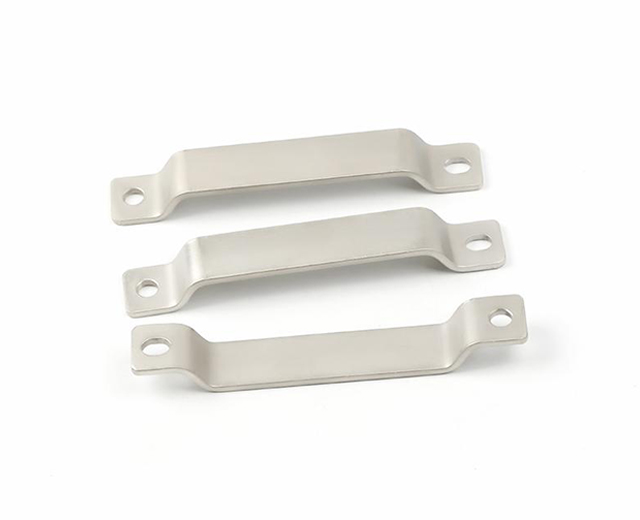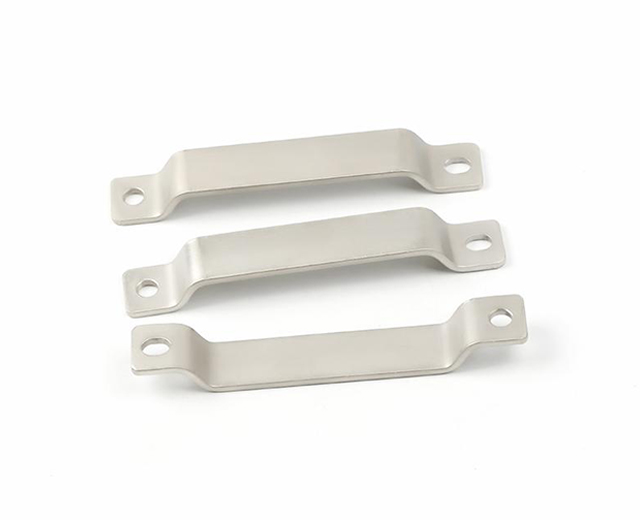

A nickel busbar is an electrical conductor made from copper or aluminum and plated with a thin layer of nickel. This design enhances corrosion resistance, provides high-temperature stability, and ensures excellent conductivity. Unlike bare copper bars, nickel plated bus bars and nickel plated Copper Busbar options are widely used in industries where harsh environments or high heat conditions exist, such as automotive, aerospace, and power electronics.
Nickel busbars can also be designed as flexible bus bar or busbar flexible types, allowing better vibration resistance and installation in compact systems.

The manufacturing process of a nickel plated busbar involves several precise steps:
Base Material Selection – Usually copper due to its superior conductivity.
Cutting & Shaping – The copper bar is cut to required dimensions.
Nickel Plating Process – Electroplating or chemical plating is used to apply a uniform nickel coating.
Heat Treatment & Quality Control – Ensures proper adhesion, thickness, and durability.
For flexible bus bar designs, laminated copper foils or braided copper wires are plated with nickel and then compressed for structural integrity.
A nickel busbar offers multiple benefits for advanced electrical systems:
High Corrosion Resistance – Nickel coating protects against oxidation, moisture, and chemicals.
Excellent Electrical Conductivity – Maintains low resistance even in harsh conditions.
High-Temperature Tolerance – Ideal for environments above 200°C.
Durable & Long-Lasting – Nickel plating extends the lifespan of plated Copper Bus Bar components.
Flexible Options Available – Busbar flexible versions allow easy installation in complex systems.
Nickel plated busbar products are widely used in:
Automotive Industry – For electric vehicles and hybrid systems.
Power Distribution Units – Especially in harsh or corrosive environments.
Renewable Energy Systems – Solar and wind energy converters.
Aerospace and Marine Applications – Where high durability and corrosion resistance are required.
Battery Connection Systems – For high-voltage battery packs in EVs.
Flexible bus bar and busbar flexible solutions are also commonly used in applications where vibration and thermal expansion are critical.
| Parameter | Specification |
|---|---|
| Material | Copper or Aluminum with Nickel Plating |
| Plating Thickness | 5–15 μm (customizable) |
| Current Rating | Up to several thousand amps |
| Temperature Resistance | Up to 300°C |
| Customization | Hole patterns, bends, insulation, flexible options available |
Stable Electrical Performance – Even under extreme temperature fluctuations
Improved Corrosion Resistance – Nickel layer prevents rusting and tarnishing
Customizable Design – Straight or flexible bus bar configurations
Compatibility – Works well in high-voltage and high-current systems
When designing a Nickel Plated Copper Busbar, consider the following:
Current Capacity – Select appropriate cross-sectional area.
Plating Thickness – Choose based on environmental conditions (humidity, chemicals).
Flexibility Needs – For systems requiring movement, use busbar flexible or flexible bus bar solutions.
Mounting & Hole Layout – Ensure proper alignment for easy installation.
Insulation Requirements – Add heat-shrink or epoxy coating if necessary.
G and N Fortune Limited specializes in nickel plated bus bars, Nickel Plated Copper Busbar, and plated copper bus bar products. Our advantages:
High-Quality Material – 99.9% pure copper for excellent conductivity.
Advanced Plating Technology – Uniform nickel coating for maximum protection.
Custom Solutions – From rigid to busbar flexible designs, tailored to your needs.
Global Supply Capability – Serving automotive, renewable energy, and industrial markets worldwide.
Strict Quality Control – Each nickel busbar undergoes rigorous testing before delivery.
A nickel busbar is a copper or aluminum conductor coated with a layer of nickel to improve corrosion resistance and durability. It ensures stable electrical performance in high-temperature and harsh environments.
A nickel plated busbar is a busbar with a nickel coating applied through electroplating or chemical plating. It enhances longevity, prevents oxidation, and improves solderability compared to bare copper bars.
A nickel plated copper busbar specifically refers to a copper base with nickel plating, while a plated copper bus bar can refer to any coating applied to copper, including nickel. Both improve corrosion resistance and durability.
Flexible bus bar or busbar flexible designs are used in systems where vibration, thermal expansion, or movement occurs, such as electric vehicles, battery packs, and industrial machinery.
Nickel plated bus bars offer superior resistance to oxidation, corrosion, and high temperatures, making them ideal for harsh environments and long-term reliability.
Yes, we provide customized nickel busbar solutions, including dimensions, plating thickness, hole patterns, bending shapes, and flexible designs (busbar flexible).